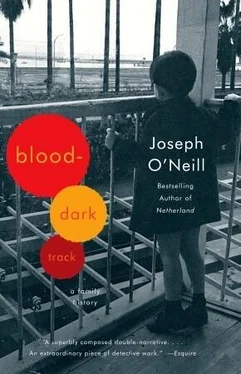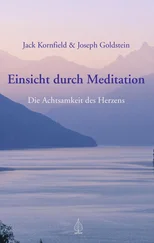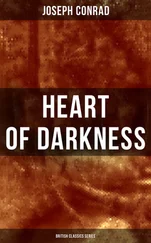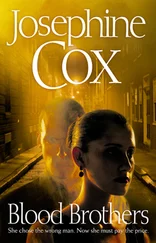‘I blame the Camp for his sickness,’ Grandma said to me when I got back to Cork.
The trouble started two years before my grandfather’s death. At first, he thought it was an ordinary stomach ailment and he went to see Dr O’Connor, who was retired. He examined Jim, put him on tablets, and told him to see Dr Barker, my grandmother’s physician. Dr Barker referred Jim to the hospital, and there his true condition was diagnosed.
Jim continued to go to work through his illness, even though the doctors had ordered him to rest. In February 1973, while in lodgings in Tarbert, Co. Limerick he was too unwell to eat the pig’s head and onions served by his landlady. My uncle Terry, who had work to do in Limerick, caught a lift up from Cork and met his father for a drink. Terry took care to prolong his drink with his father until the last bus and train for Cork had gone. ‘How are you getting home?’ Jim asked his son. ‘You’ll have to drive me down,’ Terry said. Then he came out with it: ‘I came to bring you back, Dad. I’ll tell them tomorrow that you can’t work.’ ‘OK, then,’ my grandfather said quietly; which wasn’t like him.
It wasn’t long before Jim was being treated in hospital for days at a time. My father offered to fly him to a hospital in Switzerland, but Jim stayed on at the South Infirmary, in Cork. He spent the last five weeks of his life there, for a while sharing his private room with his youngest child, Fergus, who also needed medical attention. He fought against his illness to the last. On the morning of the day he died, my father proudly told me, my grandfather summoned the will to shave. He also received a visit from, of all people, a former guard at the Curragh Camp named Dan Daly.
My grandfather died on a Wednesday. He had never once uttered the name of his illness — cancer of the pancreas — and neither, out of solidarity with her husband, had my grandmother. On Friday, his body was removed from the hospital mortuary, where the family accepted sympathies. The funeral was on the Saturday. After Mass was said at Our Lady of Lourdes, Ballinlough, he was taken in a hearse to St Michael’s Cemetery, Blackrock. His sons shouldered him through green fields that are now lost under a housing estate. My father was not there, though. Coming from Abu Dhabi, where he’d driven a jeep across the desert to catch the first flight back, he was greatly upset to miss the funeral by hours.
My grandfather’s coffin was swathed in the customary pall of the patriot, the green, white and gold flag of Ireland. It was a sunny day, and people threw crisp shadows. An IRA guard of honour marched in step alongside the coffin; they wore berets, tricolour armbands, jackets and ties. Behind them walked my grandmother in a blue dress and a hat. She led a procession of many hundreds of people. There was a great turn-out for the funeral of James O’Neill.
Among the mourners was Dr Barker, who was attending a patient’s funeral for the first time. ‘I was very disappointed,’ she said afterwards to my grandmother, ‘to see that nice man was implicated in the IRA.’ The security services, by contrast, knew all about Jim O’Neill’s republican connections. Expecting IRA men to make an appearance, they were present in offensive numbers, taking photographs and hanging from the trees bordering the cemetery. Somebody made a joke about the Special Branch in the branches.
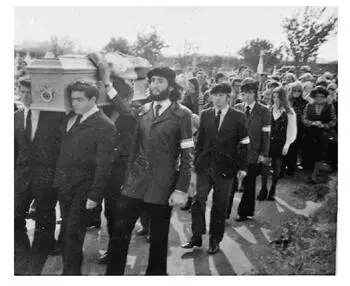
My grandfather was buried in a plot he had acquired — a double plot. From the grave, the view is of the sky, the water of the estuary of the Lee, and green Cork hills. The headstone carries the statement, IN PROUD AND LOVING MEMORY OF JAMES O’NEILL, DUN ARD.… 1ST BATTALION, 1ST CORK BRIGADE. IRISH REPUBLICAN ARMY D. SEPT 1973 AGED 63.
An obituary of my grandfather appeared in a republican publication:
In the month of September another Veteran Soldier of Oglaigh na-Eireann passed to his Eternal Reward without seeing freedom coming to Ireland for whom he sacrificed so much. He was Jim O’Neill of Briogaid A h-Aoin Corcaigh.
To his Wife and Family Cumann Briann O’Diolluin tender their Deepest Sympathy in this their Hour of Sorrow. Their loss is Ireland’s loss also because few of her sons have served her better than Jim O’Neill.
I first met Jim O as he was known to us, in the early Nineteen Thirties when I was a young lad in Fianna Eireann. He was even then a Veteran in Ireland’s Fight for Freedom. When I joined Oglaigh na h-Eireann in 1937 I served with him in № 3 Company Briogaid A h-Aoin Corcaigh. I served in this Company until I left the Cork area, but I was to meet him again in the Hell Hole of Tintown in 1940. Who can ever really understand what he and his Wife and young Family suffered during those years or the years following his Release while he fought to Re-Build their lives.
In the years that followed he was ever willing to play his part in Re-Building the Republican Movement. When Ireland called her sons to Arms for the present and final fight for Freedom Jim O was one of the first to answer her call. Although now in Failing Health no task was too great for him. He was to the fore in organizing Collections for Northern Aid and An Cumann Cabrac. His car was available at any time it was required. One of his last acts before entering Hospital for the last time was to help Cumann na mBann in Cork to Organize and Run a Bazaar.
His one regret in his final years was that Age and Ill-Health did not allow him to join in a more active way with the young fighting Volunteers in Occupied Ireland, it was with them that his Heart always lay.
Unfortunately the time has not yet come when the full story of the part he played in Ireland’s Fight can be written, but please God the day is not far off when it can.
Go ndeanfaid Dia Trocaire ar Do Ainnaim A Seamus.
I was moved by this obituary and by the esteem in which my grandfather was held by his comrades, and saddened for him that even they regarded his life as essentially tragic. But I soon realized that the obituary did not really operate as a sorrowful assessment of Jim O’Neill’s life: by casting him in a tragedy, a dramatic mode in which the individual’s catastrophic fate is typically the work of an irresistible and often divine force, my grandfather was being granted a form of absolution. His tragic fate was, moreover, provisional, because his full story could only be told once we, the living, had completed his life’s unfinished business: and I was reminded of Robert Emmet’s patriotic cry from the dock, in 1803, that his epitaph should only be written when Ireland took her place among the nations. Thus suspended in a narrative limbo, my grandfather became a soul whose redemption lay in our hands, a ghost.
But did the full story of Jim O’Neill involve the killing of Admiral Somerville? I had a clue to go on. In the course of our trip together, Brendan had told me that I should speak to Peig Lynch, the widow of my grandmother’s brother Jack Lynch.
It is quite natural that we should adopt a defensive and negative attitude towards every new opinion concerning something on which we have already an opinion of our own. For it forces its way as an enemy into the previously closed system of our own convictions, shatters the calm of mind we have attained through this system, demands renewed efforts of us and declares our former efforts to have been in vain.
— Arthur Schopenhauer, Essays and Aphorisms
A few months after my return to London from Israel, I fixed another appointment with Sir Denis Wright to discuss the Gandour file. Wright had no opinion on Gandour, whom he hadn’t known, but he was able to speak about Norman Mayers, his predecessor as consul in Mersin. ‘Mayers was a good chap,’ Wright said, ‘and I admire his guts in the Gandour business. But he was an isolated fellow — a bachelor in his forties, somewhat wet and fussy in his habits — and it may be that loneliness led to his over-friendliness with the Syrians, who were always throwing lavish parties. The Turks became very unhappy about it and in the end Mayers had to be pulled out. I was a vice-consul in Trebizond at the time, and my assignment was to take over from Mayers and clean up the mess.’ When Wright arrived at his new post, he saw immediately that he had to be extremely careful. ‘Mersin was a nest of intrigue and gossip. All sorts of strings were being pulled — by the Turks, by our people, by the Syrians, by others — and one was in the middle of it all, which was somewhat exhausting. I decided from the beginning to keep the Syrians at arm’s length,’ Wright said. ‘I created quite a stir by not turning up at a garden party held by one of them on Empire Day, and as a result my stock with the Turks rose sharply. It helped a lot, I think, that Iona and I spoke some Turkish.’ He glanced out at his large and beautiful and sunlit garden, where his wife was working on the vegetable patch in which she and her husband grew rhubarb, parsley, potatoes, lettuce, beans and gooseberries. ‘Iona,’ he added, ‘couldn’t really bear it in Mersin. She didn’t make any chums, and after a few months she returned to Britain. I think she got fed up with the endless tea parties and bridge parties and the silly chatter of the Syrian women.’
Читать дальше
Конец ознакомительного отрывка
Купить книгу
